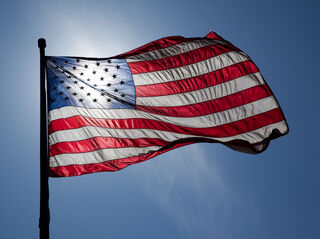Education
The Two Types of Patriotism
Understanding natural loyalty and manipulation.
Posted April 30, 2022 Reviewed by Vanessa Lancaster
Key points
- Manufactured patriotism is initiated and executed by individuals and institutions with an agenda.
- Natural patriotism occurs organically, a result of our deeply rooted tribal impulses.
- In the wake of Putin's war, "patriotic education" has become compulsory. Historically, American classrooms have implemented it as well.
In an article this week discussing Russia’s slide toward totalitarianism, historian Francine Hirsch pointed out that the country’s education ministry has introduced a compulsory patriotic curriculum for elementary school students.
In the wake of Russia’s invasion of Ukraine and resulting widespread destruction and loss of innocent life, the Putin regime is silencing dissent while demanding support for its war effort, and molding schoolchildren into loyal patriots is a key aspect of that drive.
“Historical education will begin in schools from the first grade,” announced Russia’s education minister, Sergei Kravtsov, explaining in boldly Orwellian terms that children will be taught that Russia has never mistreated “fraternal nations” such as Ukraine. Accompanying this carefully crafted and selective teaching of history will be regular patriotic exercises, with schools now starting each week by singing the Russian national anthem and raising the country’s flag.
While most of us would be quick to criticize Russia’s "patriotic education” efforts, we should realize that they are hardly unique to totalitarian regimes. In fact, the concept is alive and well here at home. Former President Donald Trump cited “patriotic education” as the goal behind creation of his “1776 Commission” in 2020.
The panel was established to promote a “pro-America curriculum” for schools, focusing on national pride and deemphasizing (or ignoring completely) uncomfortable aspects of our history such as slavery, racism, and the mistreatment of Native Americans. Similar programs to emphasize patriotism in civics and history curricula have been launched in Florida, Texas, and elsewhere.

Similarly, long before Putin’s Russia initiated mandatory singing of the country’s national anthem and raising of the flag in schools, regular nationalistic ceremonies were already commonplace in American schools.
Daily recitation of the Pledge of Allegiance – a formal ceremony saluting the flag and pledging loyalty – has been conducted even among the youngest of students (who couldn't possibly understand the meaning of what they are saying) for decades in many American schools.
Those who attempt to opt out of such exercises, whether for reasons that are political, religious, or otherwise, have been criticized or even disciplined by school authorities.
When national loyalty is produced via propaganda, the selective and inaccurate teaching of history, and repeated exercises designed to condition loyalty in students, the efforts themselves and their results can be described as a manufactured patriotism. Such patriotism is produced through preconceived institutional planning and execution. Its goal is not critical thinking, but more often an obedient citizenry that will support governmental efforts and frown upon dissent.
The nature of manufactured patriotism can be better understood when contrasted with the other kind of patriotism, which I will call natural patriotism. This is the innate tribalistic impulse that causes us to generally favor the land and people of our upbringing, especially when challenged or threatened by an outside group. It is deeply rooted in the DNA of humans and most other primates. This loyalty to one’s own clan, community, or in-group has had evolutionary survival value for longer than our species has existed, and it need not be “instilled” through government mandate.
When we contrast manufactured patriotism, which is initiated through institutional efforts, with natural patriotism, which arises organically, we can see that manufactured patriotism is almost always connected to an agenda of some kind. That agenda is usually political, but can often be multi-pronged: support our military, support our war, and support our government and its leaders.
This is not to suggest that manufactured patriotism is always dishonest (though it often is), nor is it necessarily always the product of malevolent powerbrokers (though again, it often is), but it would be a mistake to overlook the fact that it is inherently agenda-driven. That agenda might sometimes be benign, perhaps even desirable – but oftentimes that is not the case, and in such circumstances a critically thinking public should be on guard to call it out.
And just because natural patriotism isn’t the product of institutional design and execution, that doesn’t mean it is always benign. Natural group loyalty and favoritism certainly have their benefits in many contexts, but we should remember that such impulses, when joined with other naturally occurring human impulses (such as aggression or greed), can be downright dangerous, even without the propaganda, disinformaton, and biased education of manufactured patriotism.




